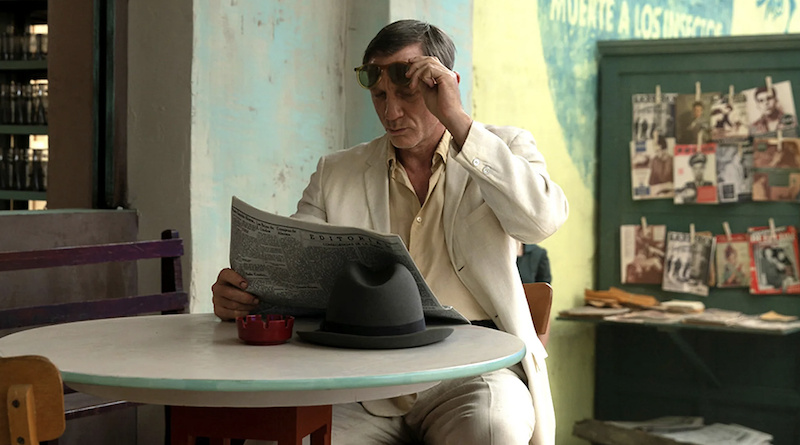Queer: Daniel Craig’s Heartbreaking Reinvention in Luca Guadagnino’s Bold Adaptation

Daniel Craig trades in his suave Bond persona for a raw and unfiltered performance in Queer, Luca Guadagnino’s visually striking yet divisive adaptation of William S. Burroughs’ semi-autobiographical novella. Premiered at the Venice Film Festival, the film opens in Belgium theaters on February 26th, offering audiences a journey into desire, addiction, and existential yearning.

From Mexico City to the Jungles of Ecuador
Set in the 1950s, Queer follows William Lee (Craig), a middle-aged American expat navigating the seedy bars of Mexico City in search of both alcohol and fleeting connections. His obsession with Eugene Allerton (Drew Starkey), a young, enigmatic former soldier, becomes the driving force of the narrative. As their bond intensifies, the pair embark on a surreal journey through the jungles of Ecuador in search of yagé (ayahuasca), a psychotropic plant that Lee hopes will unlock telepathic powers.
Craig delivers a heartbreaking performance that strips away the confidence of James Bond to reveal a man grappling with desire and self-loathing. His portrayal oscillates between swaggering self-importance and a complete lack of dignity, capturing the essence of Burroughs’ flawed yet deeply human protagonist

A Bold Visual and Aural Experience
Visually, the film blends cinematic artifice with evocative design. Shot largely on soundstages at Rome’s Cinecittà Studios, its stylized sets evoke Edward Hopper paintings—artificial yet immersive. Cinematographer Sayombhu Mukdeeprom, known for Call Me By Your Name and Suspiria, crafts frames that feel both dreamlike and detached.
The soundtrack, composed by Trent Reznor and Atticus Ross, oscillates between lush romance and unsettling dissonance. Their score is complemented by deliberately anachronistic needle drops from artists like Nirvana, Prince, and Sinéad O’Connor, which, while jarring for some, add a layer of timelessness to the film’s exploration of desire.

A Tale of Obsession and Vulnerability
Craig’s chemistry with Starkey anchors the film’s emotional core. While Lee’s passion borders on obsession, Starkey’s reserved yet magnetic presence keeps audiences questioning Eugene’s true feelings. Their intense, explicit encounters—far removed from the coyness of Call Me By Your Name—lay bare the characters’ raw vulnerability. Sure, the film contains plenty of nudity and sex scenes but the real heart of this film lies with what’s happening between our two lead actors’ ears.
Supporting performances add depth and humor to the narrative. Jason Schwartzman steals scenes as Joe, a bearded poet with a penchant for rough trade, while Lesley Manville is virtually unrecognizable as the toothless, snake-wrangling scientist Dr. Cotter
A Divisive But Unforgettable Film
While Queer has been praised for its performances and visual ambition, its narrative structure and tonal shifts have divided critics. The film’s episodic nature and indulgent runtime may test viewers’ patience, particularly during its trippy, plotless second half. For me, it felt like something bold, fresh, and equal parts nihilistic and tender.
Ultimately, Queer stands as a testament to Craig’s versatility and Guadagnino’s willingness to push boundaries. It may not be a conventional love story, but its portrayal of longing, addiction, and identity ensures it will linger in audiences’ minds long after the credits roll.
Queer opens in theaters on February 26th—don’t miss Daniel Craig like you’ve never seen him before.


